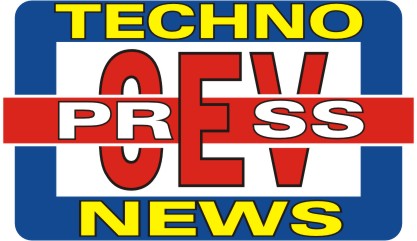MAJOR PROBLEMS FACING ENGINEERING EDUCATION IN INDIA
Prof. Mainak Ghosal[1]
Introduction
India is one of the largest producers of engineers in the world. Yet the quality of engineers is quite poor and by some estimates, only 7-8% of engineering graduates are employable which is perfectly in tune with the National Employability Report. In this 21st century globalized world, engineering education and its profession are facing various challenges and would continue to do so if some serious introspections are not done.
The 5 IITs were set up in the first decade or so of independence and still continue to serve both locally and globally. During the early 80s there were about 100 engineering colleges but due to the demands of the industry during successive 5 years Plans and incoming liberalization and globalization these colleges became insufficient. This led to force the Government to allow and facilitate privatization in the technical set up of engineering colleges in India with Tamil Nadu being the first state to do so by opening up 50 new private engineering colleges. Post-2000, we witnessed income growth in all spheres.
Salary income increased multi-fold and self-employed persons were happy with rising income. Rural income was also on an upswing; maybe at a lesser proportion. A sizeable percentage of the poor were upgraded to middle class and middle to rich class. We witnessed a revolution in mobile telephony, automobile, aviation, higher education; computers, etc. Ample job opportunity was created due to economic growth. Land and real estate value are also appreciated. This led to a mushrooming growth in the number of engineering colleges but maintenance of the quality has become a victim today.
The quality of education in these private colleges is very unbalanced. Many of these colleges lack even basic facilities essential for good engineering education and have practically no quality teachers at all. But on the other hand, some have excelled and are as good as or even better than many of the Government engineering colleges today. Deemed Universities have also mushroomed.
Most of them do not belong to the same class as those recognized as such twenty years ago. Our Indian engineers are now competing with the global engineers and if found failing they may be substituted by any other young engineer from any corner of the World, say China, or the Philippines, or Latin America. This global challenge was not so prevalent in our country till the last decade.
As Professor Klaus Schwab, Founder and Executive Chairman of the World Economic Forum express in his book The Fourth Industrial Revolution that in 21st-century technological changes will occur in a cycle of 5 years, and to meet the new technological standards we need to follow up with changes in our education system otherwise India’s new generation may also miss the bus.
How to become a Registered Valuer under Companies Act? ALL YOU NEED TO KNOW -An Overview
Brief Discussion
Very recently, as many as 122 private engineering colleges had to shut down and across the country/world there has been a severe slump in the IT and manufacturing sector despite ‘Make in India’ and 100% FDI in Construction, Defence, Aviation, Pharmacy, Food Products & Animal Husbandry resulting in a serious dearth of jobs for those who pass out of private engineering colleges with the unemployment rate growing @ 9.5% every year. In this context the education imparted to a budding engineer is very crucial for his global positioning as well as the development of his surroundings and society.
Various review reports have pointed out that there exists a misalignment between engineering education and practice; engineering educators hardly understand engineering practice beyond design and technical problem solving; this large gap between education and practice has become traumatic for young engineers, forcing them to think about alternative occupations. Some critical issues as pointed out by different agencies are:
- Employers are not happy with the capabilities of engineering graduates and post-graduates.
- Engineering education seems to be boring to many students & thus they don’t attend classes regularly though get ‘adulterated’ marks in-class tests resulting in100% pass-outs or excessive-high CGPA.
- Engineering education has failed to attract talented students who really want to contribute to social development.
- Engineering programs are reputed to be difficult, thus mostly avoided by the students.
- Engineering requires multidisciplinary knowledge, work experience.
- Various application-oriented skills and innovative approaches have not been addressed by the engineering curriculum.
- Many desirable attributes of engineering graduates as per the Washington Accord (WA) are hardly these are being addressed by engineering educational institutions.
- Students’ (learning) engagements and pedagogy through proper use of ICT like PowerPoint Presentations etc. and inquiry-based learning are not incorporated in any semester in engineering degrees.
- Many web-based engineering course materials and open-source learning materials lie un-used/under-utilized like the National Programme on Technology Enhanced Learning (an MHRD initiative) on YouTube conducted by IIT Delhi.
- Engineering accrediting authorities must be created in the lines of NAAC/NBA in mobilizing the engineering educational institutions to modify their programs, their relationships with students, the role of academic staff/educators, infrastructure facilities, networking with employers, as well as assessment and evaluation methods, to improvement and evaluation methods, to improve the effectiveness of these programs.
- Private engineering colleges charge a hefty amount of fees for admission often under the garb of development fees or often through management quota which should be curbed.
- Also, it has been observed that session fees, re-admission fees, computer fees, compulsory purchase of uniform, transportation fees, and even some fees were taken in the name of summer camp.
- Most of the faculties have either crossed the age of superannuation or do not have the requisite qualifications like a master’s degree or lacking in proper publications or requisite conference participation.
- Colleges charge an amount for industrial training which is generally imparted free of cost and recruitment fees for some bogus companies which don’t even exist.
- Moreover, these PPP model institutes are controlled by strangely curious management whose identity is that of a sundry businessman dreaming to be an overnight millionaire at any cost.
Summary & Conclusion
The major problems with Engineering Education in India today can be summarized in the table below.
| 1. | Dilution of the syllabus with respect to industry needs |
| 2. | Lack of quality Teachers |
| 3. | Lack of innovation & research |
| 4. | Faculty Education system |
| 5. | Lack of skill-based education |
| 6. | Disregard of essential soft skills |
| 7. | Lack of industry-academia interaction |
We had 75 years to change our destiny but it is doubtful whether the education sector in India is on the right track to achieve its objectives. Better late than never, there is an urgent need to address the above problems ailing the technical education otherwise India will miss the opportunity to utilize its demographic dividend of a young workforce which it has.
Compiled by:-

Er. Mainak Ghosal
PhD (pursuing), ME (Struct.), PGDM, MBA (HR), MIE, MSc (REV), BSc, FIV
[1] Consultant, Banking & Construction Industry, Former Faculty — JIS College of Engineering, Kalyani, Nadia, Bengal, and Global Institute of Management & Technology (GIMT), Krishnanagar, Nadia, Bengal. The Author was formerly associated with PHED, Govt. of Bengal as Assistant Engineer (Civil).
Steps to follow to become a Registered Valuer under Companies Act? ALL YOU NEED TO KNOW -An Overview
How to become a Registered Valuer under Companies Act? ALL YOU NEED TO KNOW -An Overview
REGISTERATION OF VALUERS UNDER SECTION 34 AB OF WEALTH TAX ACT-1957 – ALL YOU NEED TO KNOW ABOUT



